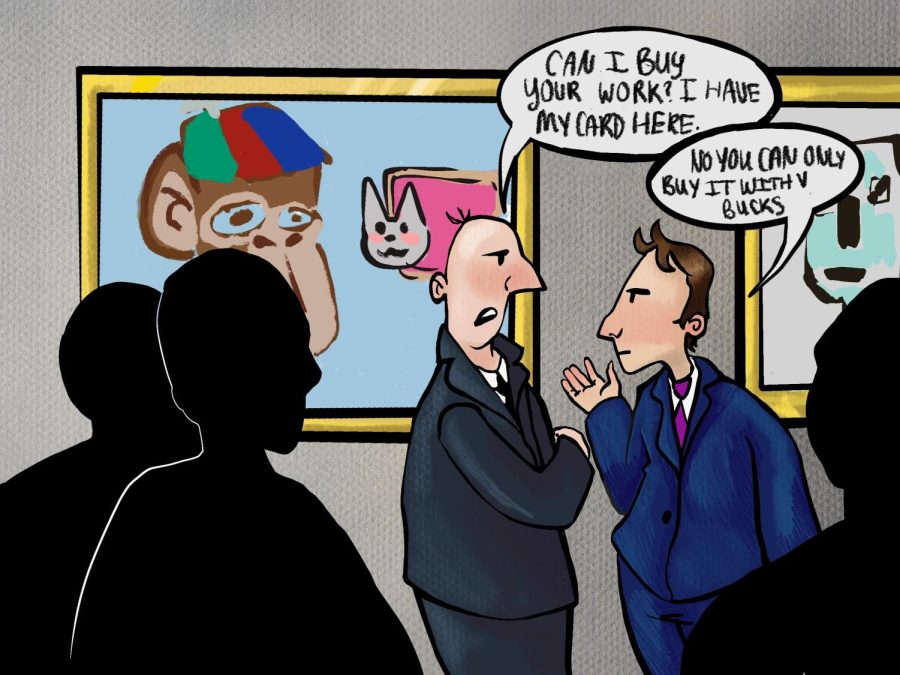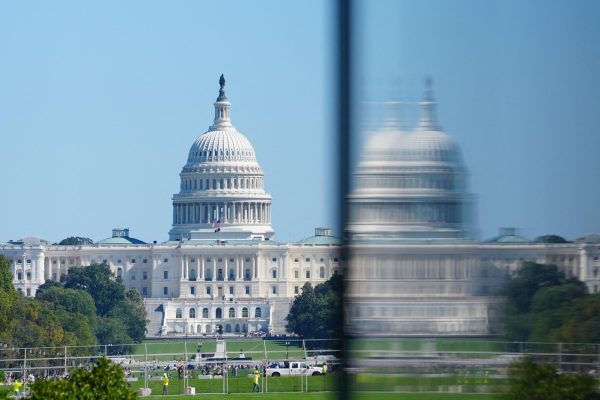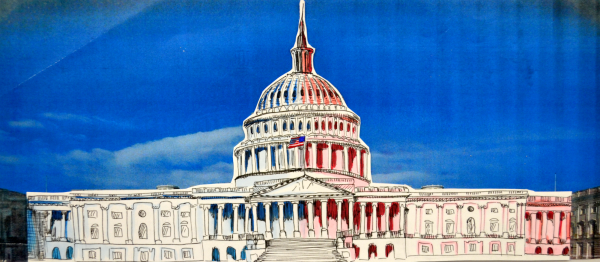NFT craze captivates and confuses
Non-fungible tokens: Unique digital collectibles traded on the blockchain like cryptocurrencies
Pros:
NFTs are commonly represented by virtual images, pieces of art, tweets or anything online that cannot be replicated. Because of this, owning the rights to an NFT can be valuable. The blockchain, a secure digital wallet that stores forms of bitcoins and cryptocurrency, is also used to store NFTs.
Since NFTs can be anything from intellectual rights to an ownership title to an asset, their reach and popularity is growing, making it more common for people to sell and create them.
Digital artist Sarah Zucker has made over $274,000 by turning her work into NFTs. She used to sell her art at galleries, but when she needed a larger source of income, she turned to the new idea of non-fungible tokens to publicize her work. According to an article from CNBC, people who were previously unable to travel to see her art now had the ability and opportunity to enjoy and own her work.
In addition to artists’ use of NFTs, there are many other ways that people have gotten involved in this new trend. Many see NFTs as a profitable investment of buying them for low prices and selling them for more. Some do not end up increasing their value, but others obtain increased interest, often when the original artist becomes more well-known and popular over time.
It is a growing belief that with all of the profits people are making from NFTs, more and more people will continue to transition their work onto digital platforms, in turn joining the world of bitcoin, blockchain and cryptocurrency as a whole.
Cons:
Along with the many perceived benefits of NFTs and cryptocurrency, a common and increasing fear with the digital marketspace is the lack of a solid way to receive the money made on the blockchain. While some bitcoins are “fungible,” meaning that they are interchangeable, other online options, such as NFTs, are not and can never have any physical representations of the asset.
Since this digital “money” has no way to be used outside of the virtual world, skeptics wonder how someone has the ability to make an actual profit. Critics disapprove of celebrities’ attempts to lure fans into trusting this unregulated, free for all scam.
People seem to believe that NFTs are trustworthy simply due to their added support from many well-known names. Instead, the public needs to consider the dangers associated with having this asset kept online.
All NFT and blockchain files are stored and encrypted with individual passcodes. If those passwords end up in the wrong hands or if someone shares their password, the entire value of their purchase has been voided. The work will be shared and become public, diminishing the worth.
With the whole protection of these files laying within one singular blockchain and kept secret by a simple passcode, is it really possible to maintain the security of these entire investments and assets?








![[VIDEO] Varsity Media Day: Winter 2025](https://thewessexwire.com/wp-content/uploads/2025/02/vmd-25winter-600x450.jpg)

